FIFA Women’s World Cup 2023: The Matildas’ next vital battle begins now – ensuring they do their legacy justice
Football Australia knows its product is hotter than an unsold Taylor Swift ticket and the time to strike is now. The Matildas’ next move must be to do their legacy justice.
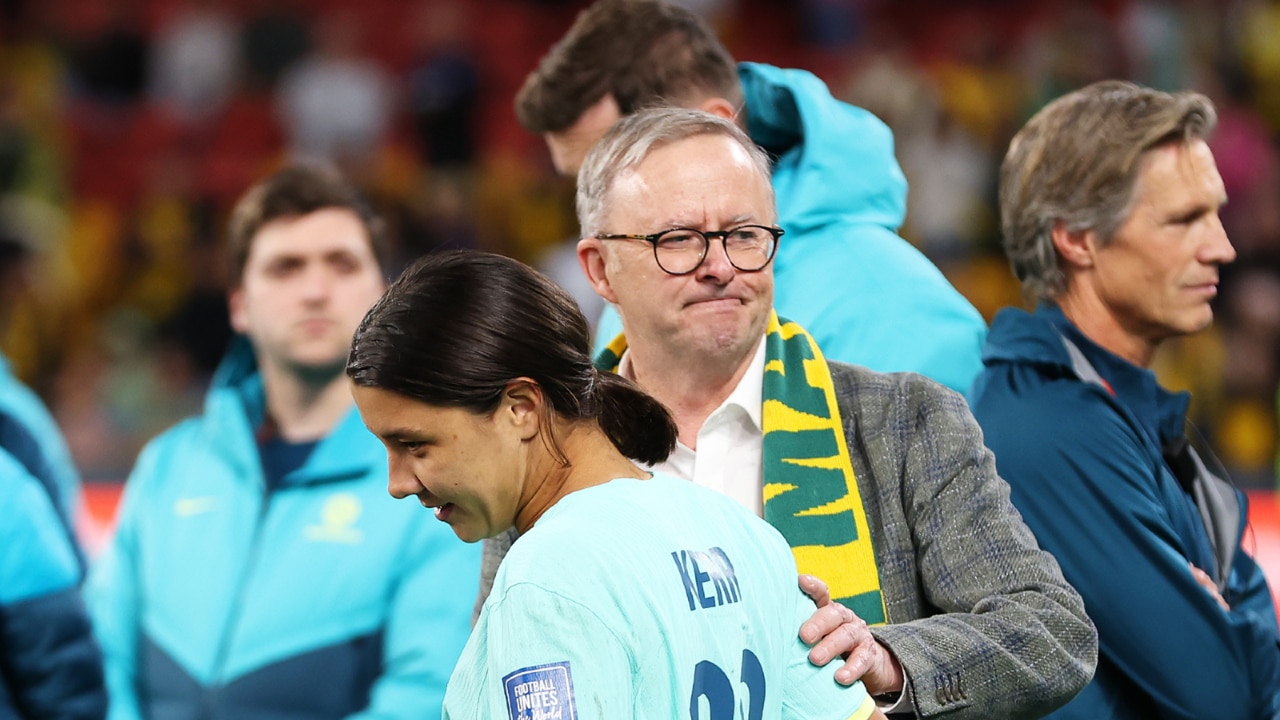
The emotions that ran white hot during the Matildas World Cup extravaganza are now set to bubble again through the campaign to do their legacy justice.
The Matildas, despite a late tournament fade-out, have given football not simply a supercharged profile and a strong voice but a megaphone to ensure the world is listening.
At least for the moment.
The Matildas finished their ground breaking campaign with a 2-0 loss to Sweden at Suncorp Stadium on Saturday night, sentencing them to a fourth placed finish.
It was their best Cup result yet still a disappointment after tournament glory winked at them in the semi-finals.
It was a match in which they looked tired, flat and taut as the exhaustion of the month in which they shook the world set in.
The electric crackle of their mid-tournament form had gone in the week after they beat France in an iconic penalty shootout on the same ground to send them into an emotional orbit which left them unable to produce their best work again.
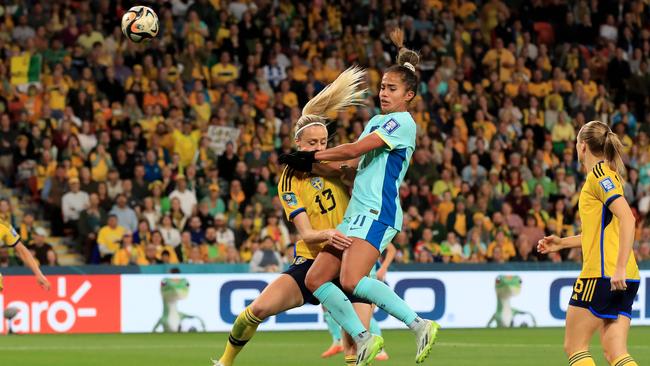
Earlier in the day the first tangible sign of their legacy was rubber stamped with Prime Minister Anthony Albanese announcing a Play Our Way campaign to bankroll women’s sport facilities.
Heavy on ambition but light on detail, the $200 million program, inspired by the Matildas and hurriedly announced before their last game to maximise impact, was supporting all women’s sport.
Outspoken former Socceroo Craig Foster Tweeted: “Nowhere near enough. Nor targeted to football. Come on @AlboMP. Get serious. Now is your chance to elevate the country through the multicultural game.”
And so starts the sport’s dash for cash.
Football knows its product is hotter than an unsold Taylor Swift ticket and the time to strike is now. Foster was right. There was no special guarantees for women’s football.
No matter what lies ahead in the funding feud, the Matildas can be proud of what they achieved.
With more than seven million fans watching their loss to England, it’s quite possible we have seen the never-to-be-bettered night of Australian television ratings.
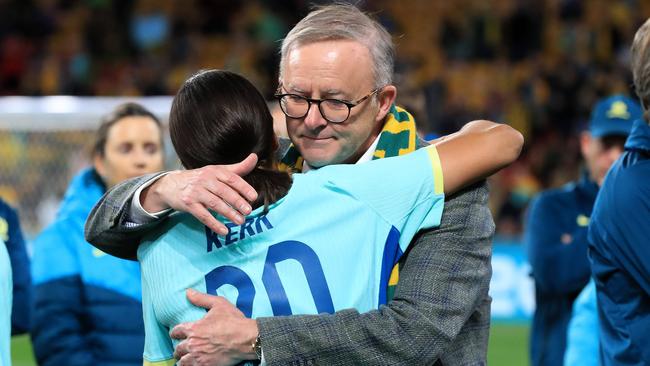
Think about it. Given the gigantic figure doubles State of Origin matches and AFL and NRL grand finals what could possibly get close to it?
We suggest its next rival will be nine years away at the Brisbane Olympics but only if another Cathy Freeman moment falls from the heavens.
Along the way to their semi-final entrance the Matildas took time to adjust to their escalating profiles.
Cortnee Vine, who kicked the winning goal in the penalty shootout against France, said sometimes “she still feel like I have impostor syndrome. You know, do I belong here? When I walk around some people want my photo and I get bit shocked. It’s a bit awkward.’’
It was that type of humility that added to their charm.
Elle Carpenter copped plenty of criticism for a defensive blunder against England but also provided one of best short summaries of the transition of her sport.
“When I was growing up (in Cowra) I was with a boys team – I didn’t have a girls team,’’ Carpenter said.
“I went and watched the Matildas play when I was 12 years old and there were 300 people in the stadium but it still made me want to play for Australia. I was still dreaming of playing on that pitch with those girls.
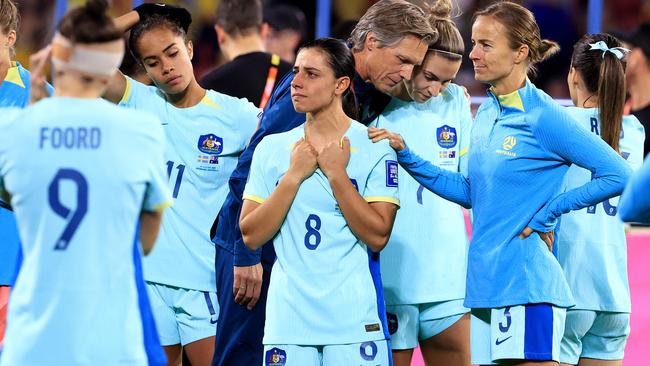
“If I was a 12 year old now in Stadium Australia and Suncorp for young boys and girls to see that is unimaginable. I am so proud to be part of this generation. We wanted to inspire the next generation and pave the way for women’s football in Australia.’’
The Matildas team which competed at this World Cup will undertake a vast renovation before the next one.
Katrina Gorry is 31 and while she may go to the Paris Olympics next year she is unlikely to last until the next World Cup.
Gorry declared after the loss to England “I now truly believe we are a footballing country,” and it is an achievement she takes great pride in.
As the veterans leave the scene the good news is a group of young players who know what it is like to play in front of 80,000 fans are emerging with the likes of Kyra Cooney-Cross (21), Clare Hunt (24) and Mary Fowler (20).
They all seem set for long-lasting careers but nothing may top the month in which they took a journey to the stars and brought their country along for the ride.






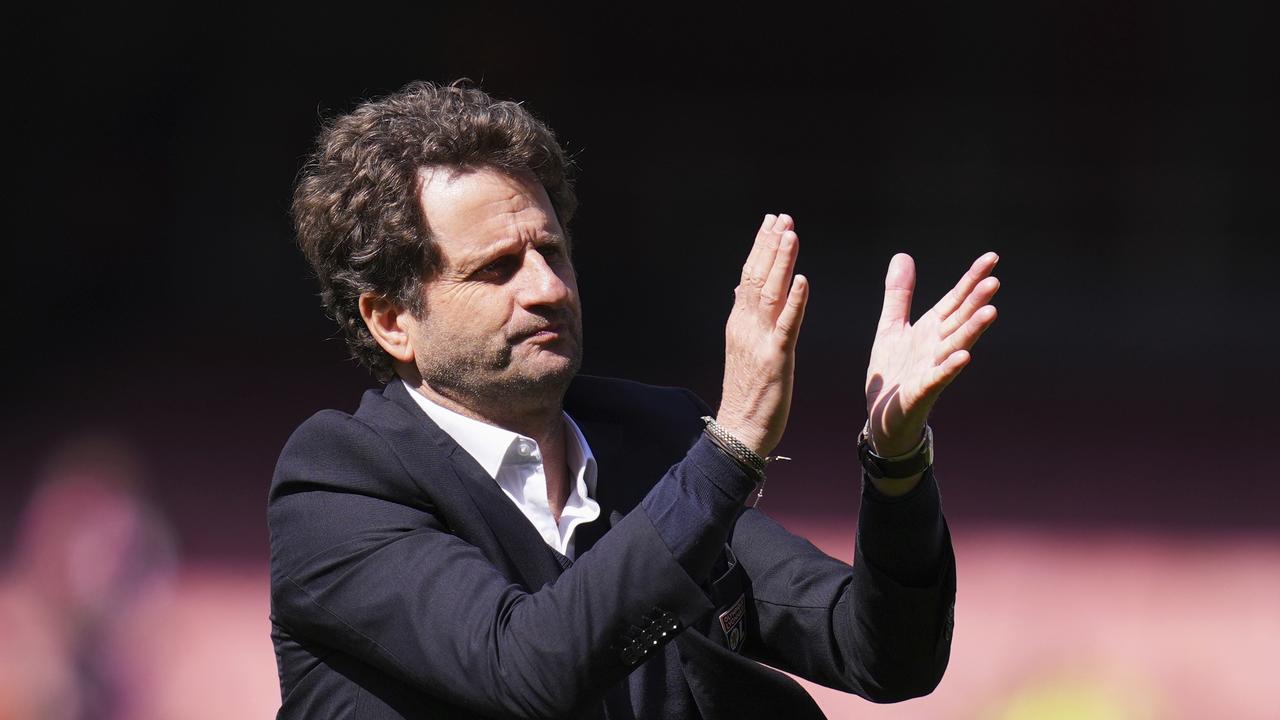
To join the conversation, please log in. Don't have an account? Register
Join the conversation, you are commenting as Logout